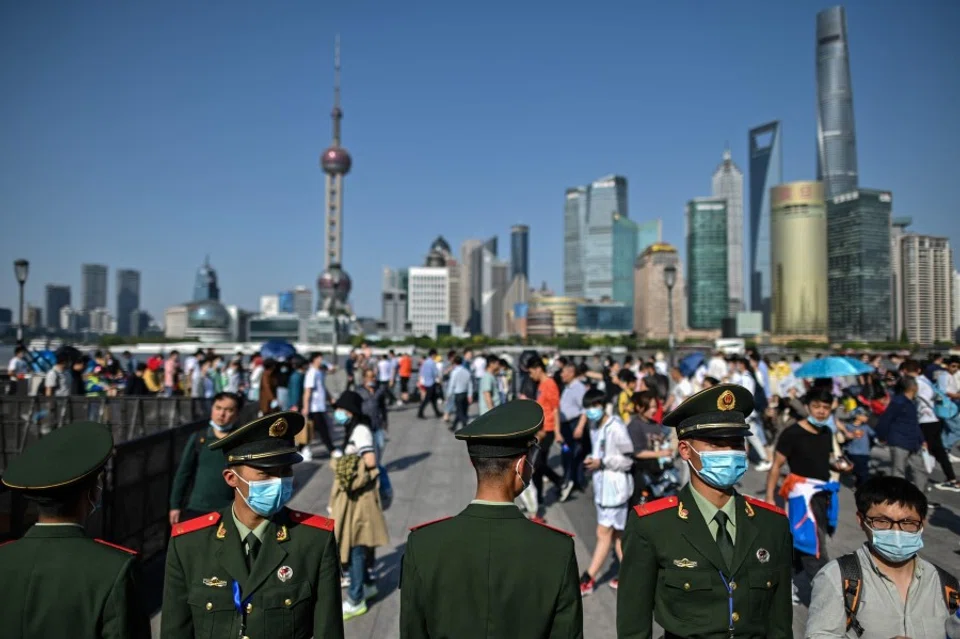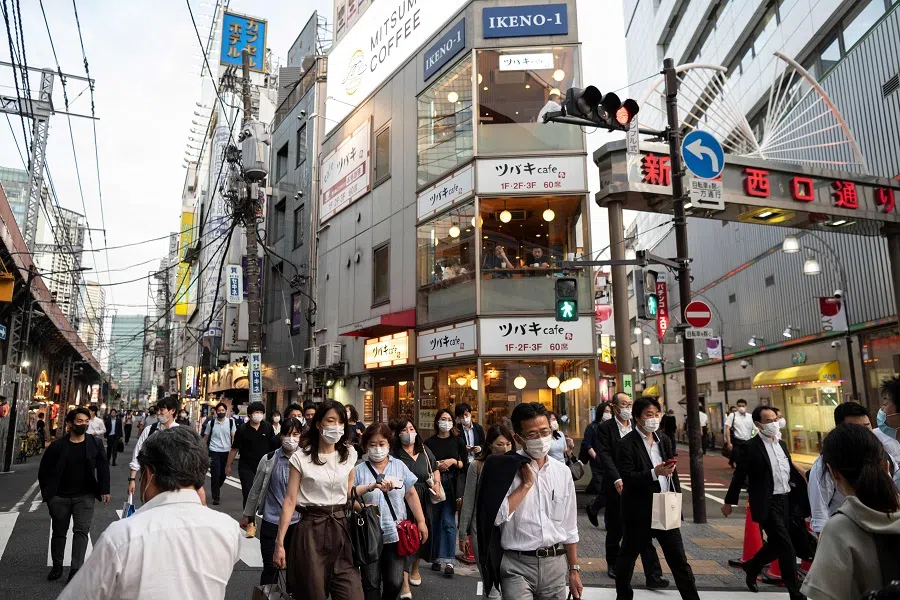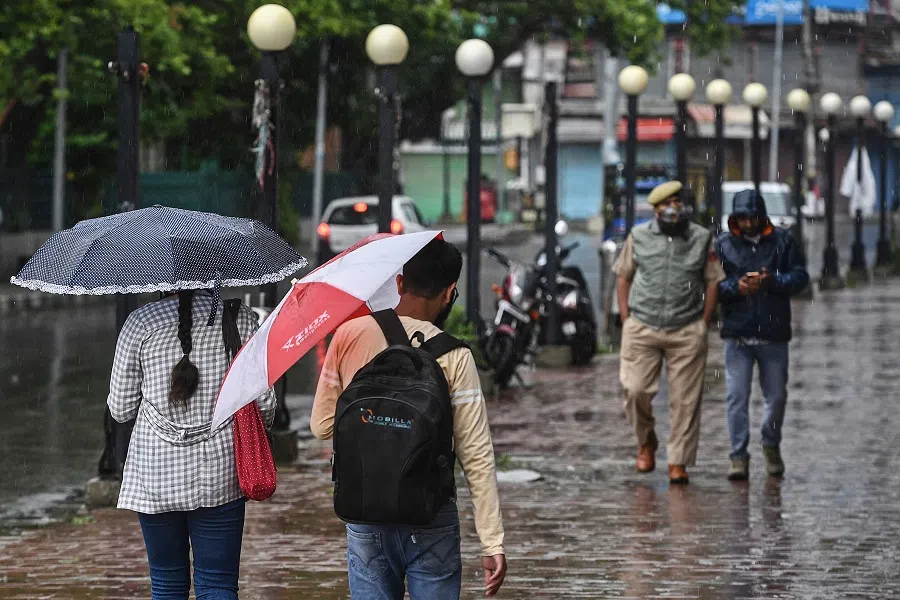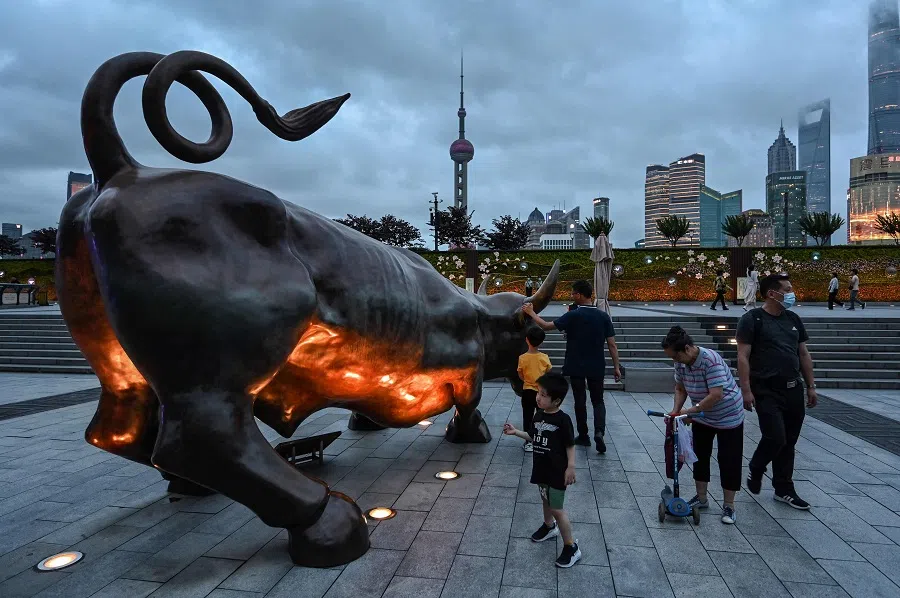Why the world will face a global leadership vacuum
Chen Kang explains why global governance is hard to achieve, not least due to the limited effectiveness of multilateral organisations, the waning willingness of the US to lead in global governance, and the conflicts between global governance and national sovereignty.

Globalisation and technological progress have made global governance increasingly important. What happens in one nation often has significant impacts on other nations and may even trigger global turmoil. Close international cooperation is of critical importance, whether it is to combat the Covid-19 pandemic, protect the world's ecology or to maintain financial and cyber security. Likewise, the issues of immigration, climate change and the protection of renewable resources require global collective action.
However, since a "world government" does not exist, global governance today is reliant on the cooperation of nearly 200 nations. Governments voluntarily join international organisations, be signatories to international agreements, and agree to be bound by international rules and agreements. However, this cooperation currently faces three unavoidable problems: the limited effectiveness of multilateral organisations, the waning willingness of the US to lead in global governance, and the conflicts between global governance and national sovereignty.
The limited effectiveness of multilateral organisations
Multilateralism emphasises the inseparability of the interests of all nations and adheres to the principles of universality and non-discrimination. Multilateral organisations established on these principles are the ideal frameworks of global governance as they are inclusive and enduring. However, a huge gap lies between the ideal and the reality. Due to the disparity in size and the diverse interests of nations, their influence on international affairs and contribution to the global economy vary significantly. Invariably, it is problematic to establish a reasonable collective decision-making mechanism in multilateral organisations.
According to the World Bank's data, the top ten most populous nations in 2019 are China, India, the US, Indonesia, Pakistan, Brazil, Nigeria, Bangladesh, Russia and Mexico, totalling 57.7% of the global population. In contrast, only 8% of the global population is made up of the 150 least populous nations. The 2019 top ten economic powers in terms of current US$ are the US, China, Japan, Germany, India, the UK, France, Italy, Brazil and Canada, accounting for 66.9% of the global GDP. However, the GDP of the 150 small economies account for less than 9% of the global GDP. If we maintain that all nations, regardless of size, are equal and apply the majority rule that features one nation one vote, larger nations and economies will always be only a minority in multilateral organisations. They will consequently feel that their interests are not safeguarded.

Conversely, if the larger nations and economies are given more weight and power in collective decision-making, the smaller ones will be worried that their interests are not safeguarded. According to the World Bank's data, the exports of goods and services of the top ten trading nations (China, the US, Germany, Japan, France, the UK, the Netherlands, South Korea, Singapore and Italy) in 2019 account for 52% of the world's total. The exports of the next 20 nations account for 29%, and the total exports of the other 133 WTO nations constitute less than 18%. The exports of the small economies may be unimportant to the world but are very important to themselves. In 2019, the export of goods and services by the Republic of Djibouti accounts only for 0.02% of the world's total, but it is 149.2% of its GDP and the lifeblood of its economy.
Within a nation, local interests may sometimes be sacrificed for the greater overall benefit. In the international community, it is impossible to sacrifice the interests of one nation for the interests of other nations in peaceful negotiation. If the decision of a multilateral organisation is unfavourable, sovereign nations can choose to either not abide by it or withdraw from the multilateral organisation. Withdrawals from multilateral organisations are not uncommon.
In view of this, many multilateral organisations, including the World Trade Organization (WTO), have adopted consensus decision-making. The advantage of this collective decision-making mechanism is that any member nation can exercise its veto over unfavourable decisions. The disadvantage is that too many veto holders will result in the tragedy of the anticommons and frustrate multilateral organisations, rendering them all talk and no action and therefore ineffectual. The WTO was in this predicament in the Doha Round negotiations that lasted 14 years from 2001 to 2015 without achieving any outcome. Professor Michael Heller of Columbia University believes that the main feature of the anticommons is that property rights are fragmented and not easily usable, and that they must be consolidated in order to resolve the tragedy of the anticommons. To do so in international organisations requires member nations to give up veto power, which however is impossible to retract once it is granted.
The WTO's inefficiency and the sluggish progress of WTO reforms have resulted in disappointment and impatience in many nations, which instead establish regional trade organisations. 11 Pacific Rim nations signed the Comprehensive and Progressive Agreement for Trans-Pacific Partnership (CPTPP) in 2018, and 15 Asia-Pacific nations signed the Regional Comprehensive Economic Partnership (RCEP) agreement in 2020. These "cliques" are generally initiated by a few nations, which hope to canvass more nations to participate so as to increase their influence and effectiveness. From its founding with the Inner Six, the EU has now expanded to 27 member nations. ASEAN has also expanded from five to 10 member nations. Most multilateral organisations share this process of expansion.

However, the heterogeneity of multilateral organisations increases with the increased number of participating nations, creating more obstacles for seeking consensus, as seen in the expanded EU and ASEAN. The original 16 RCEP nations are ASEAN+6, that is the ten ASEAN nations plus China, Japan, Korea, Australia, New Zealand and India. Without India's withdrawal, the negotiations could not have been completed in 2020, after 31 rounds of negotiations since 2013.
Multilateral organisations are facing such a dilemma: when they comprise fewer member nations, they find themselves in the predicament where seeking consensus is easy with greater efficiency in decision-making, but their influence and benefits are limited. However, as membership increases and the sphere of influence expands, the decision-making mechanisms increasingly resemble the anti-commons, with greatly reduced efficiency and effectiveness.
The waning willingness of the US to lead in global governance
In reality, it is extremely difficult to organise nearly 200 countries for global governance because there are too many members in this collective. In his book, The Logic of Collective Action: Public Goods and the Theory of Groups, Professor Mancur Olson of the University of Maryland has highlighted that collective action in a privileged group is easier to realise because the larger members are willing to bear most, if not all, of the costs of the collective action as they benefit much more from it than other members. For example, the US believed that the North Atlantic Treaty Organization (NATO) could considerably aid in its security during the Cold War and was willing to bear up to 70% of NATO's military expenditure. Smaller nations, such as Luxembourg, Belgium, Portugal, Denmark, Norway, Greece and Turkey, bear less than 1% of NATO's expenditure.
The asymmetry of the benefits of collective action leads to the asymmetry of contribution towards those benefits. This is demonstrated by the larger members bearing the costs while smaller members become free riders in the "exploitation of the great by the small". Olson further adds that it will be easier to achieve collective action if there is an incentive mechanism to penalise free riders who destroy cooperation and reward behaviours that contribute to collective action. His theory illustrates that global governance must be led by superpowers, whose leadership is embodied in their willingness to bear the costs for international collective actions and their ability to implement measures to reward and penalise.
After World War II, the US became the world's largest economy and military power. As a large member of the collective of nations, the US had a strong encompassing interest as developments beneficial to the global economy were basically advantageous to the US. The current global governance organisations of the free market economy, including the World Bank, the International Monetary Fund (IMF) and the WTO (formerly the General Agreement on Tariffs and Trade, GATT), were established post-World War II under US leadership. However, another superpower, the Soviet Union, emerged then and led the Eastern Bloc with a different global governance model in opposition to the West led by the US.
With the obvious narrowing of the encompassing interests of the US, its incentive and willingness to bear the costs for collective action is greatly weakened.

With the collapse of the Soviet Union in the early 1990s and the end of the Cold War, US leadership peaked and the US became the sole superpower leading in globalisation and global governance, resulting in "Pax Americana", or American Peace. During the 1991 Gulf War, coalition forces authorised by the UN Security Council launched Operation Desert Storm defeating Iraq, ending the latter's occupation and annexation of Kuwait. Leading the operation, the US dispatched 74% of the troop mobilisation by the 34-nation coalition and shouldered most of the expenses. To gain Egypt's support, the US forgave US$7 billion of Egyptian debt.
Of course, the US will not support international collective actions that disadvantage itself. For instance, out of its own interests, the US has refused to sign the UN Convention on the Law of the Sea (UNCLOS), the US Senate also did not ratify the Kyoto Protocol which aims to reduce greenhouse gas emissions. With unfettered power, the US administration has also abused punitive measures, as illustrated by its 2003 invasion of Iraq to overthrow the Saddam regime without the UN Security Council's authorisation. The casualties and humanitarian disasters caused by the Iraq War and the subsequent years of the Iraqi civil war have demonstrated that superpower leadership is a double-edged sword.
In recent years, the willingness of the US to lead in global governance has visibly waned. With the rapid development of China and other emerging economies, the US GDP has dropped from 39.7% of the global GDP in 1960 to 24.4% in 2019. The correlation between global and US economic growth has reduced. With the obvious narrowing of the encompassing interests of the US, its incentive and willingness to bear the costs for collective action is greatly weakened. Further, the significant changes in benefit distribution caused by globalisation have created new winners and losers within the US.
As income disparity widens and conflicts intensify, anti-globalisation political powers have strengthened. Trump's election as US President with the "America First" slogan reflects this change in US public opinion. He is the US president who withdrew from the largest number of international organisations and treaties, including the negotiations of the Trans-Pacific Partnership (TPP) trade deal, the Paris Agreement on climate change, the negotiations of the Global Compact for Safe, Orderly and Regular Migration (GCM), and the World Health Organization (WHO). The US has rendered the Appellate Body of the WTO (WTOAB) non-functional by blocking the appointment of new adjudicators, and Trump even threatened to withdraw from the WTO. Clearly, the Trump administration was destroying the global governance organisations initially established by the US itself.
Although the US has rejoined the Paris Agreement and the WHO, it is a shadow of its former self.
After President Biden took office, he declared that "America is back" and gave greater priority to rebuilding US leadership under the multilateral frameworks. Although the US has rejoined the Paris Agreement and the WHO, it is a shadow of its former self. The result of the 2020 presidential election has shown that the political forces supporting Trump remain very strong. As a result of polarised US politics, President Biden lacks credibility on the global stage, and the international community is concerned with another president similar to Trump in the White House in the near future.

Today, China is the other nation capable of playing a leading role in global governance. It is the second largest economy in the world, accounting for 16.3% of the global GDP in 2019, and is also the most populous and the largest trading nation. In recent years, China has played an active role in the international community by initiating the establishment of the Asian Infrastructure Investment Bank (AIIB) and advocating international cooperation through the Belt and Road Initiative (BRI).
China has become the largest bilateral creditor to low-income nations, accounting for 63% of total credits extended by G20 countries in 2019, which is almost on par with that of the World Bank. During the Covid-19 pandemic, China has provided vaccines as incentives for nations participating in the BRI. It has also provided debt service relief of US$2.1 billion through the G20 Debt Service Suspension Initiative (DSSI), enabling 23 low-income nations to use their funds for emergencies in combating the pandemic instead of debt repayment.
However, in executing the G20 DSSI, China has considered the loans for the BRI projects and by national development banks as commercial loans and excluded them from the initiative. In the debt restructuring initiatives by the World Bank, the IMF, and the G20, China is only willing to suspend debt servicing, while debt relief discussions would be relegated to bilateral negotiations. Being the largest creditor, China's choice undoubtedly increases the difficulty of debt restructuring. This is perceived as reluctance to implement the debt restructuring and debt relief rules set by the Paris Club of 22 rich nations.
China's choice may also be out of self-interest. According to an October 2020 report by the Rhodium Group, a quarter of China's overseas lending (about US$94 billion) has encountered difficulties in debt servicing and is under renegotiation with the borrowers. As the largest developing nation and the largest creditor of low-income nations, China may be reluctant to bear huge losses in debt relief.
It is generally acknowledged that China will, for a considerably long time, not become the leading nation in global governance that can bear the lion's share of the costs and encourage international cooperation.
With the economic slowdown, the growth of China's overseas lending is expected to be significantly slower than in the last decade, and China will adjust its previous approach as a bilateral creditor. The BRI has basically remained as a framework for bilateral cooperation projects and not become a multilateral global governance mechanism. It is generally acknowledged that China will, for a considerably long time, not become the leading nation in global governance that can bear the lion's share of the costs and encourage international cooperation.
The conflicts between global governance and national sovereignty
More importantly, China's limited ability to lead in global governance is due to its adherence to the principle of non-interference with other nations' domestic affairs. National sovereignty is customarily considered to be sacrosanct, and non-interference with each other's domestic affairs is the basic principle of international exchanges. However, as international interdependence increases with deepening globalisation, the boundaries between domestic and international affairs become less distinct. To achieve global governance is to formulate rules and regulate behaviours through international organisations' agreements and treaties as well as conditions imposed by multilateral financial institutions on their lending agreements. To strengthen global governance, the necessity to limit national sovereignty and interfere with domestic affairs is inevitable.

Since the openness of trade and investment is of great benefit to economic development, most nations are willing to obey the rules of global governance to varying degrees and even to amend laws and alter business practices to integrate with the global market. They are happy to accept rules for product classification, industry standards and customs clearance procedures, which are beneficial to trade and investment. Likewise, they welcome rules that can solve the collective failures of international interaction.
For example, with globalisation, some nations compete to attract foreign investments by reducing corporate tax rates, and multinational corporations threaten to withdraw from host nations to force a reduction in tax rates, resulting in a race among nations to the bottom. In the eurozone, the average corporate tax rate has dropped from 36.8% in 1995 to 22.7% in 2020, and the governments are suffering badly from tax losses. In London in June 2021, the finance ministers of the G7 nations have reached an agreement to set a minimum global corporate tax rate of 15%. This benefits most nations and should be accepted by many. However, it also demonstrates that taxation, the oldest and most basic right of national sovereignty, is bound by global governance.
Besides, where domestic political conditions permit, nations may also accept rules that could bring about long-term benefits but short-term disadvantages, such as those governing labour standards, environmental protection and intellectual property rights protection. When China joined the WTO, it was said that the opening up of China became the driver for its reforms.
Although the limitation of national sovereignty and interference with domestic affairs are relatively more successful in the economic arena, they often cause backlash. The discussion of the trilemma of democracy, national sovereignty and globalisation by Harvard University's Professor Dani Rodrik is centred on the conflicts between global governance and national sovereignty. While a nation forgoes a part of its sovereignty by amending its laws and accepting limitations imposed by international agreements in order to participate in globalisation, the process of globalisation causes social problems. Voters in a democracy use their votes to demand that the government asserts national sovereignty to resist the influence of global governance and oppose international rules. Brexit and the waning willingness of the US to lead in globalisation are clear demonstrations of such conflicts. As British voters believe that European integration will do more harm than good and that the UK has ceded too much sovereignty to the EU, they refuse to be bound by this supranational governance organisation and choose to withdraw from it through a referendum.
As there is no world government, global governance organisations can do little in human rights protection as they are unable to avoid the issue of national sovereignty.

Global governance has greater difficulty with human rights issues in comparison with economic issues and is more evidently counteracted by national sovereignty. In modern society, people are intolerant towards domestic abuse and family violence, and most nations have enacted laws to intervene and protect the victims. The international community does likewise. From 1948 to 2006, the system of UN treaties for human rights protection gradually developed and progressed but its implementation was limited by national sovereignty. The developments in Myanmar in 2021 are a case in point.
On 1 February, the Myanmar military coup overthrew the democratically-elected government and violently suppressed protests and demonstrations. According to the report of the UN Special Envoy, more than 600 people have been killed, 6,000 people arrested, 5,000 people detained and over 170,000 people displaced as of June. On 11 March, the UN Security Council issued its first statement to strongly condemn Myanmar's military for violence against peaceful protesters, including women and children, and to express deep concerns about restrictions to medical personnel, civil society, labour union members, journalists and media workers, as well as to call for the immediate release of arbitrarily detained persons including State Counsellor Aung San Suu Kyi and President Win Myint.
On 24 April, ASEAN leaders held a dialogue in Jakarta, Indonesia, with the leaders of the Myanmar military regime and reached a five-point consensus that included "immediate cessation of violence in Myanmar ..., constructive dialogue among all parties concerned shall commence to seek a peaceful solution ... [and] a special envoy of the ASEAN Chair shall facilitate mediation of the dialogue process." However, ASEAN's mediation failed to produce the desired results and the Myanmar military did not fulfil the five-point consensus, continuing to violently suppress the protesters.
On 18 June, the UN General Assembly adopted a resolution condemning the acts of violence committed by the Myanmar military and calling on all nations to stop supplying weapons to the junta. Nevertheless, the UN intervention is unlikely to have any substantial effect, illustrating the difficulty that confronts global governance in dealing with human rights protection. As there is no world government, global governance organisations can do little in human rights protection as they are unable to avoid the issue of national sovereignty.
...global governance will endure a period of leadership vacuum.
The stance of five ASEAN nations including Singapore was noteworthy. To maintain the principle of non-interference with domestic affairs, they did not publicly criticise the Myanmar military within ASEAN but adopted a clear position under the UN framework and voted for the resolution to condemn the Myanmar military's acts of violence. Evidently, their inconsistent behaviour reflects the awkwardness in which they find themselves due to the principle of non-interference with domestic affairs.
While multilateralism is popular, there appears to be an increasing number of "cliques" established by a few nations. Although many nations maintain their adherence to the principle of non-interference with other nation's domestic affairs, this principle itself is being challenged and tested. Despite global governance requiring superpower leadership, the influence of the US is clearly on the wane and China is unable to fill the gap. Consequently, global governance will endure a period of leadership vacuum. Currently, while there are no feasible solutions to these three major problems of global governance, they must be earnestly considered, with some requiring a new appreciation and understanding. They must definitely not be avoided.
Related: Humanity is facing a crisis of global governance, not globalisation | Beyond ASEAN: More 'no-superpower coalitions' needed as US-China rivalry upsets global interests | Will the pandemic undermine the long-term leadership capability of the US? | New battleground for China-US competition: International organisations





